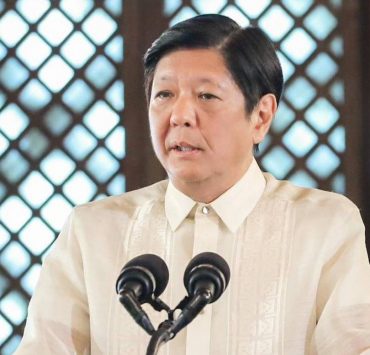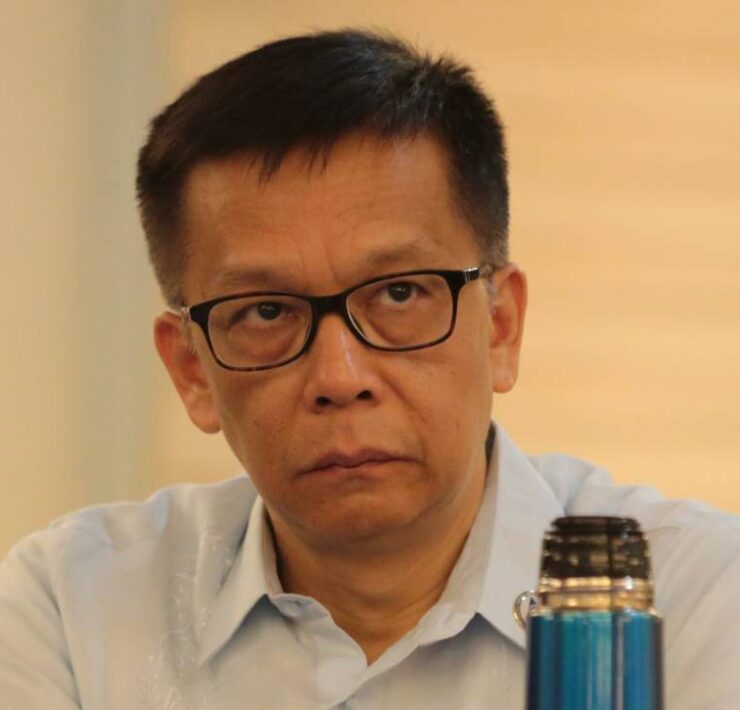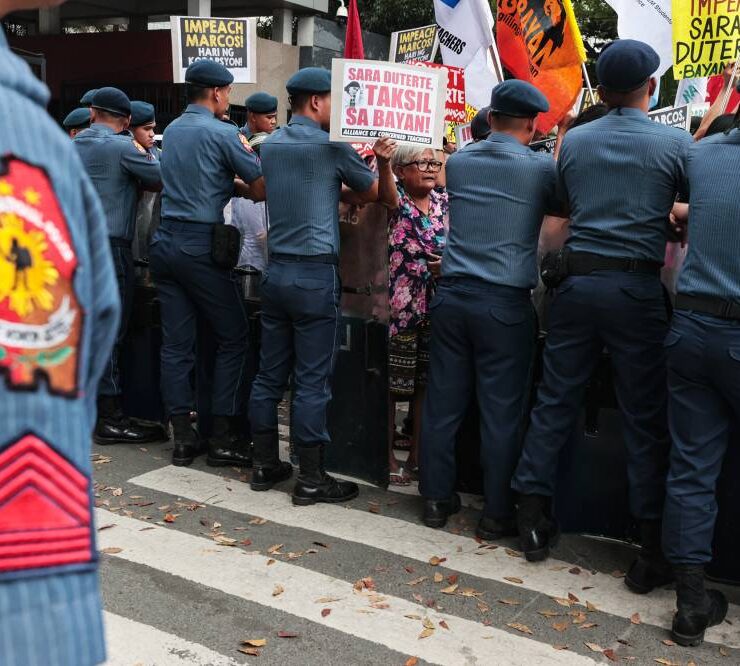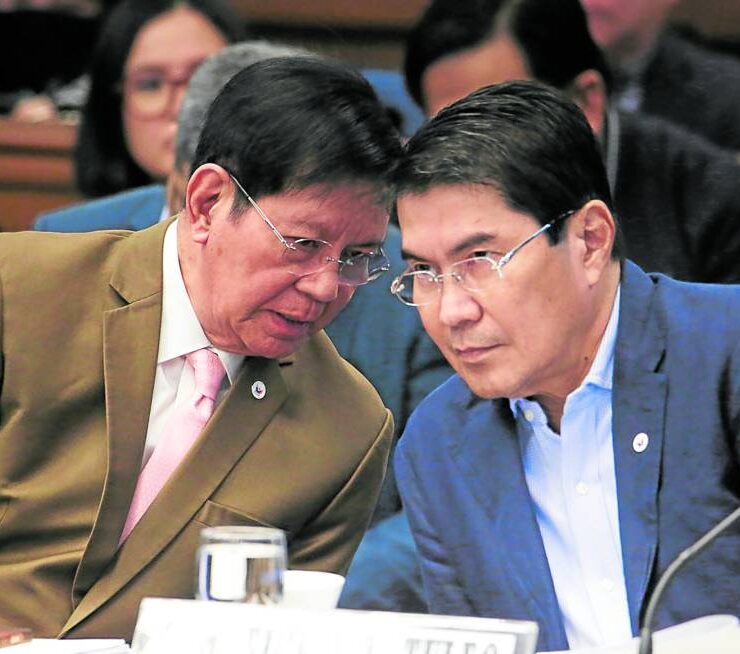Marcos: West PH Sea not figment of imagination
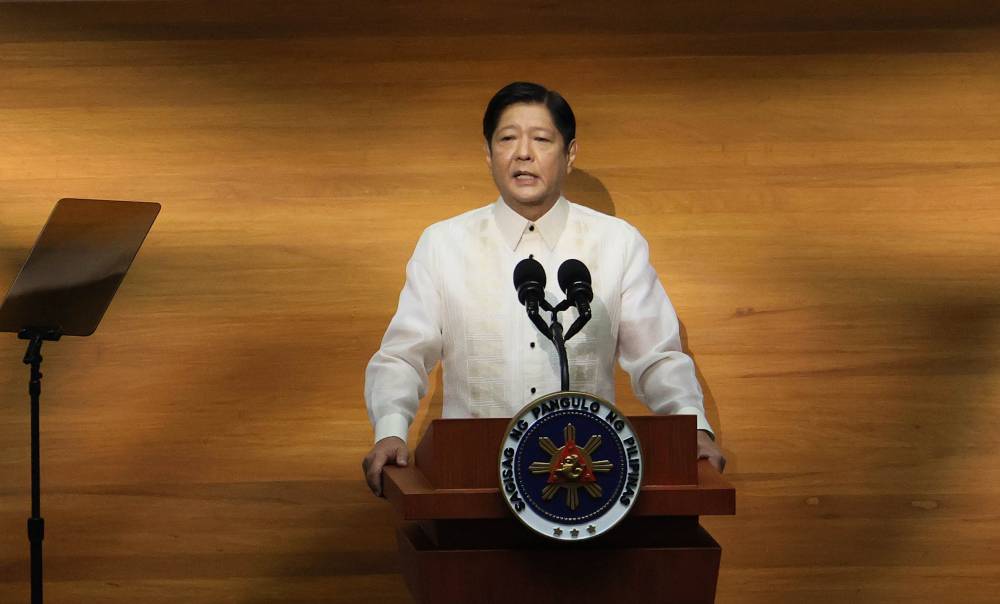
President Marcos on Monday reaffirmed his administration’s commitment to continue its thrust to uphold the country’s territorial rights and sovereignty, through what he termed as “diplomatic” and “pacific” means.
In his third State of the Nation Address (Sona), the President took a tough stance that the Philippines will continue to assert its rights and interests, while continuing efforts to de-escalate tensions in the disputed waters in the West Philippine Sea (WPS).
“The West Philippine Sea is not a figment of our imagination; this is ours, and we continue to be so for as long as the spirit of our love for country lives on in all of us,” the President emphatically said in Filipino, his statement briefly interrupted by cheers and a standing ovation from the audience at the Batasang Pambansa.
“The Philippines cannot yield. The Philippines cannot waver,” he stressed.
Though evading mention of the prevailing tension in the WPS with China, the President said that the Philippines “will assert [its] rights and interests in the same fair and pacific way that [it has] always done.”
“Proper diplomatic channels and mechanisms under the rules-based international order remain the only acceptable means of settling disputes,” he said.
Peace and community-building will always be the Philippines’ clarion call, the President noted, citing the country’s scheduled hosting of the Association of Southeast Asian Nations (Asean) Summit in 2026.
The President said the government would undertake measures to strengthen and enhance the awareness of the Filipino people, and ensure that this is passed on to the younger generations.
“Laws on our maritime zones and archipelagic sea lanes will make sure that this intergenerational mandate—this duty—will firmly take root in the hearts and minds of all our people,” he said.
Fortifying defense posture
The Philippines, he said, continues to fortify its defensive posture both through developing self-reliance and through partnerships with like-minded states.
“We are now more conscious as a people, and strategic in heightening our aerial and maritime domain awareness,” he said.
The Philippines has a Visiting Forces Agreement with the United States and Australia.
Earlier this month, it signed a Reciprocal Access Agreement with Japan allowing the entry of military troops and equipment into each other’s jurisdiction for combat training and disaster response.
The government is also involving its foreign partners in helping patrol its territorial waters, especially in the WPS where China has recently escalated its aggressive behavior by blocking resupply missions to Filipino troops stationed in Ayungin (Second Thomas) Shoal.
The President paid tribute to the Armed Forces of the Philippines, the Philippine Coast Guard and the Filipino fisherfolk in the WPS.
“Please accept our wholehearted gratitude for your continued vigilance and sacrifices,” he said, drawing loud cheers and a standing ovation.
He said the Philippines would “continuously try to find ways to de-escalate tensions in contested areas with foreign counterparts, but without compromising its position and principles.”
“I know that our neighbors too are doing their best to make this work,” he said.
Aside from the Philippines, other members of Asean such as Vietnam, Brunei and Malaysia also have overlapping claims with Beijing, which claims nearly the entire South China Sea despite an international tribunal’s ruling in 2016 saying it had no legal basis.















